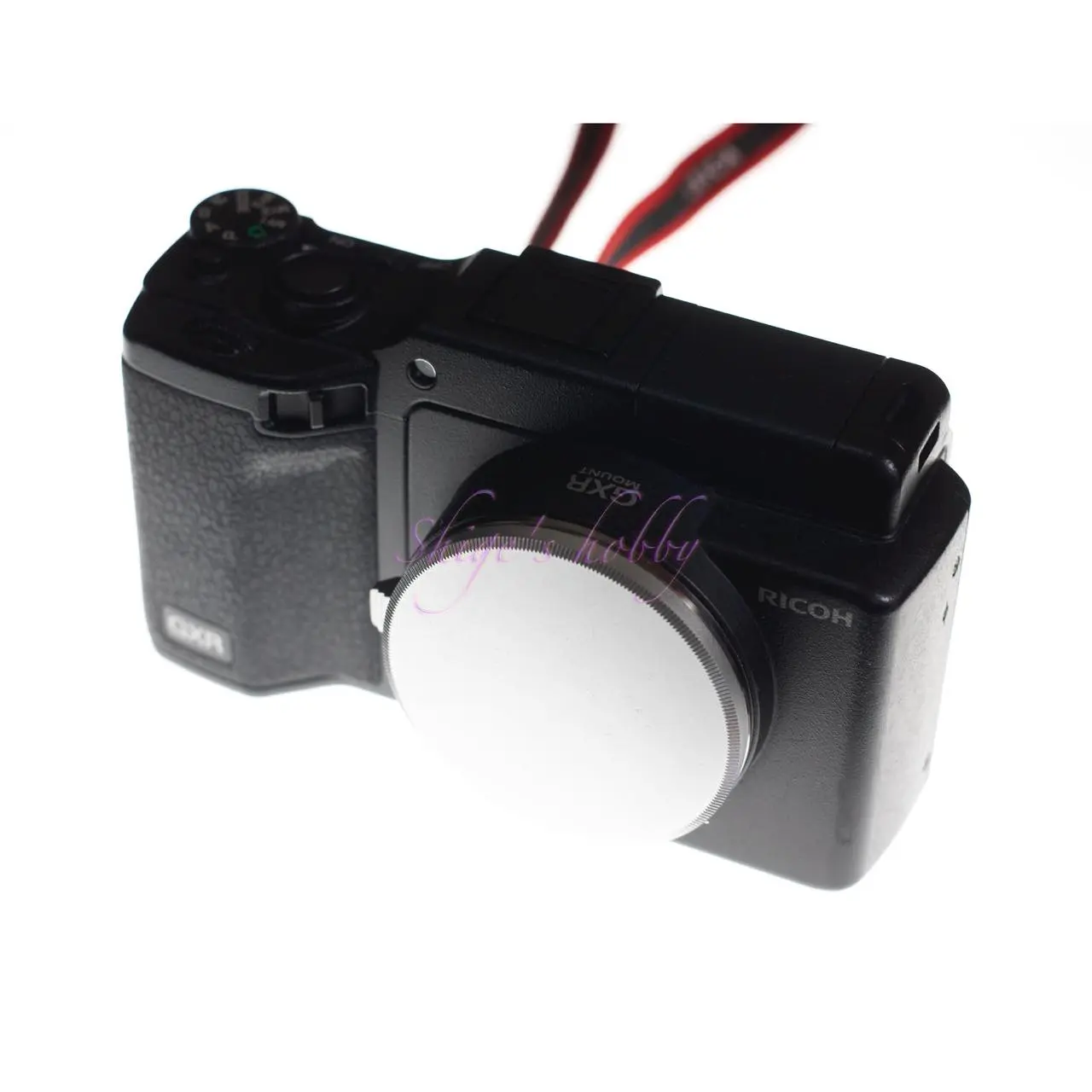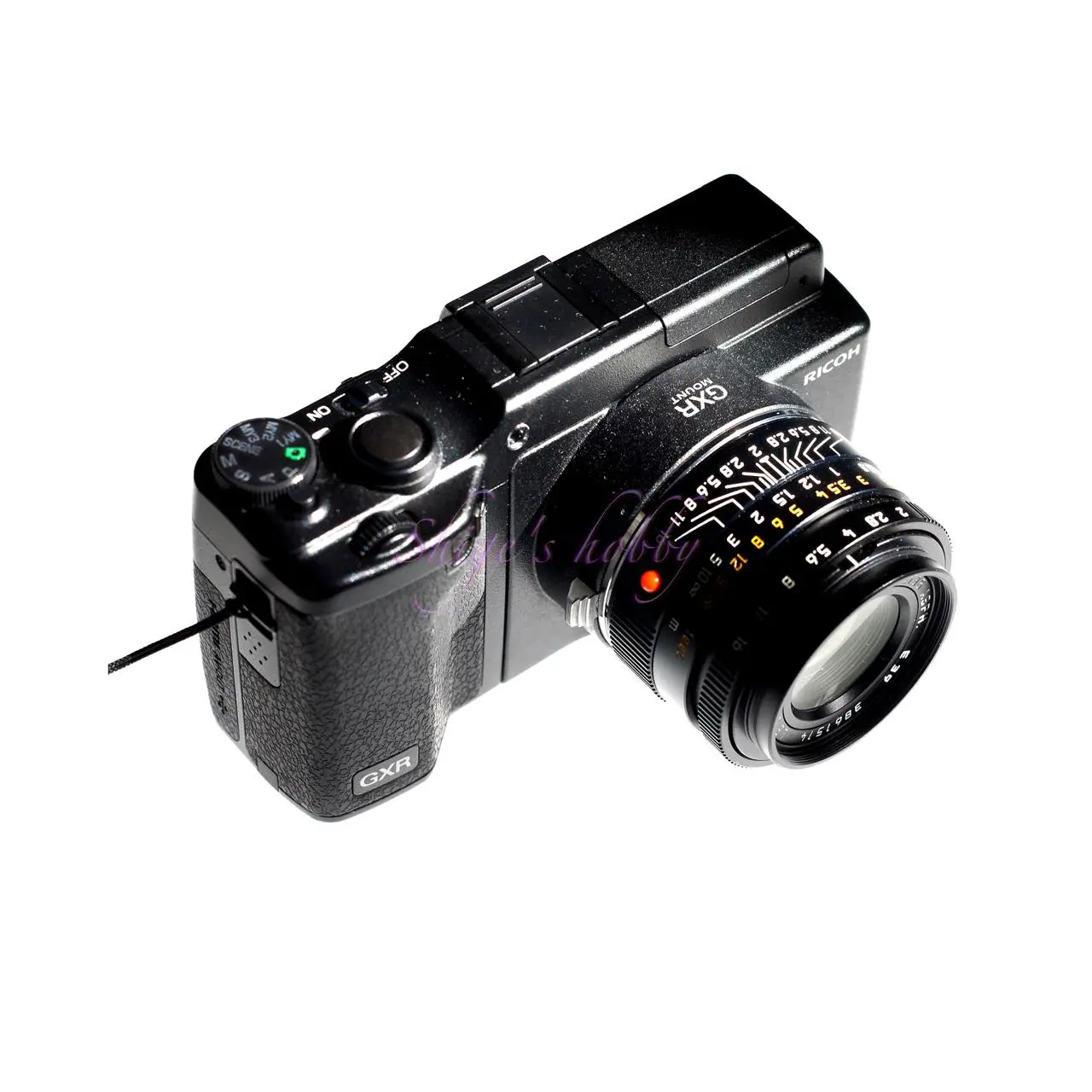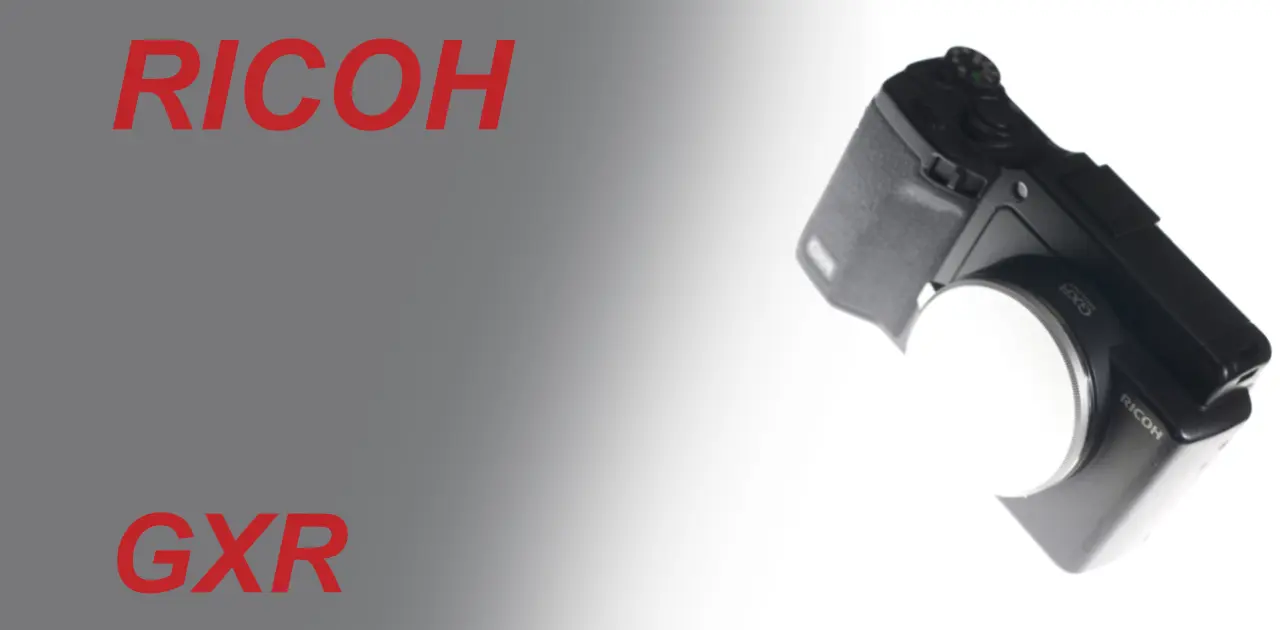Last updated on 2025-10-26
A review and Photo example of the RICOH GXR with some lens unit and A12-M-mount.
Table of contents
Gallery
Review


1.Overview
The RICOH GXR is a digital camera with an interchangeable lens unit that Ricoh released in 2009.
The GXR itself is an electronic device equipped with a battery and LCD display.
The core of the digital camera – the unit that brings together the image processing chip, lens, shutter, etc. – is released in the following six types:
- S10 24-72mm F2.5-4.4 VC (1/1.7, 10MP)
- A12 50mm F2.5 MACRO (APS-C, 12MP)
- P10 28-300mm F3.5-5.6 VC (1/2.3, 10MP)
- A12 28mm F2.5 (APS-C, 12MP)
- MOUNT-A12 (APS-C, 12MP)
- A16 24-85mm F3.5-5.5 (APS-C, 16MP)
GXR lens unit specifications list
| Unit name | A12 50 | A12 28 | A16 24-85 | MOUNT A12 | S10 24-72 | P10 28-300 |
| Sensor size | APS-C | APS-C | APS-C | APS-C | 1/1.7 | 1/2.3 |
| Number of pixels | 1230 | 1230 | 1620 | 1230 | 1000 | 1000 |
| Focal length | 50 | 28 | 24-85 | – | 24-72 | 28-300 |
| Max Aperture | 2.5 | 2.5 | 3.5-5.5 | – | 2.5-4.4 | 3.5-5.6 |
| Shake Reduction | – | – | – | – | exist | exist |
| Min distance (mm) | 70 | 200 | 250 | – | 10 | 10 |
| Option1 | – | External viewfinder GV-1 | Automatic opening and closing lens cap LC-3 | – | Automatic opening and closing lens cap LC-2 | Automatic opening and closing lens cap LC-1 |
| Option2 | – | External viewfinder GV-2 | Lens Hood LH-2 | – | Teleconversion lens TC-1 | – |
| Option3 | – | Lens Hood LH-1 | – | – | Wide conversion lens DW-6 | – |
| Option4 | – | – | – | – | Hood & Adapter HA-3 | – |
The camera is powered by a rechargeable battery DB-90 (3.6V), which is compatible with Fujifilm’s NP-95 because it has the same shape and voltage. Compatible batteries are also sold by various companies, and are still easy to obtain as of 2024.
The concept of the GXR is presumably based on the idea that users would be happy if they could replace the lens and sensor as if they were replacing film.
For this concept to be successful, it would have been necessary for the value of the parts that make up the camera, such as the LCD display and the body parts of the operation system that the GXR fixed, to account for 70 to 80% of the total.
However, the value of the fixed parts of the GXR was only about 10 to 20% of the total, and the remaining main value was the shutter, sensor, and image processing device installed in the replacement parts, so the price was set so that every time you bought a new unit, you would have to buy a new digital camera.
Perhaps they hoped that mass production would bring down the prices of the sensors and shutters, which are the main value proposition, but this did not happen, and the concept ultimately failed.
2.Usability
The RICOH GXR is one of Ricoh’s unique digital cameras.
I have purchased the GXR twice, the first time in 2011 and the second time in 2017. The first time was with the MOUNT-A12 unit for Leica M mount, and the lens unit A12-28mm was purchased because Ricoh can’t leave out the 28mm equivalent that is part of the GR lineage.
In 2017, the price was at its lowest, so I purchased the S10 24-72mm F2.5-4.4 VC and MOUNT-A12.
Since the GXR itself is an old camera, all the units equipped with APS-C size sensors that process a lot of data, such as the A12-28mm and MOUNT-A12, are sluggish in all operations, and I couldn’t shoot with the same feeling as the film GR1, which allows me to take snaps around town with ease.
The MOUNT-A12 was released in 2011 and could use Leica M mount and L39 mount lenses, and had some good points such as being able to input the lens focal length for exif recording. Looking at the images I took, I was impressed by the sensor’s ability to bring out the characteristics of the lens. If it wasn’t so sluggish, I’d use it again.
In 2011, the LEICA M9 with its 35mm full-size sensor was my main camera, so I didn’t really appreciate the APS-C size sensor + Leica M mount, and after using it for a while, I got rid of it all because of the poor visibility of the LCD viewfinder VF-2 and its slow operation.
3.Summary
In conclusion, to sum up the RICOH GXR, it is a product that attempted to make a digital camera with a different approach than a film camera, but its intentions did not pan out and it ended up being a failure.
Taking advantage of the characteristics of digital is a project that would be difficult for a major manufacturer to realize, so I would like to commend RICOH for making it happen.
A printer unit was also planned, although it was only a mockup, and depending on the balance of the pricing, there may have been a future where the GXR could be attached to a variety of devices. A smartphone unit or the like would have been good.
Specification and Competitor
The MOUNT-A12’s competitors are the EPSON R-D1 and mirrorless cameras with APS-C size sensors that can use Leica M mount lenses. Micro Four Thirds has a small sensor size, so it is difficult to compete on the same level.
The EPSON R-D1 was released in 2004, and in 2010 Sony released the mirrorless cameras NEX-3 and NEX-5 with APS-C size sensors, and various companies released Leica M mount lens adapters for Sony E-mount.
It is assumed that most users who use Leica M mount with APS-C size sensors are Sony or Epson users. I myself used the R-D1, and I was using M mount lenses with the NEX-5 and an M mount adapter.
Fujifilm’s X-Pro1 was released in February 2012, so the GXR MOUNT-A12 was released before that. In hindsight, if the MOUNT-A12 had been released at the same time as the GXR in 2009, or even a year later in 2010, it would have had a greater impact on the market and sales would have increased. Unfortunately, the MOUNT-A12 was released too late in 2011.
Alternatively, if it had been equipped with a 35mm full-frame sensor and priced at around 100,000 yen in 2011, it may have had a significant impact on the market. However, the Canon EOS 6D with a relatively low-priced 35mm full-frame sensor was released at the end of 2012, and the Sony α7, a mirrorless camera with a 35mm full-frame sensor, was released in 2015, so it would have been very difficult to develop a low-priced 35mm full-frame unit that could be mounted on the GXR with the technology available in 2011.
| Model name | GXR | GX100 | GX200 |
| Number of effective pixels (million pixels) sensor size | variable | 1000 1/1.75 | 1240 1/1.7 |
| Focal length(mm) 35mm format | variable | 24-72 | 24-72 |
| View finder | external | ← | ← |
| Max Shutter speed | variable | 1/2000 | ← |
| Battery | DB-90 | DB-60 | ← |
| Back lcd | 3.0-inch color LCD 920,000 pixels | 2.5-inch color LCD 230,000 pixels | 2.7-inch color LCD 460,000 pixels |
| Recorded media | SD/SDHC | ← | ← |
| Size(mm) (H x W x D) | 70 x 114 x 38 | 58 x 112 x 25 | ← |
| Weight (Body only) | 160+Lens unit | 220 | 208 |
| Body color | Black | ← | ← |
| Release date | 2009 | 2007 | 2008 |
Options
- LCD viewfinder VF-2
- Cable switch CA-1
- AC adapter AC-5
- Rechargeable battery DB-90
- Battery charger BJ-9
| Unit name | A12 50 | A12 28 | A16 24-85 | MOUNT A12 | S10 24-72 | P10 28-300 |
| Sensor size | APS-C | ← | ← | ← | 1/1.7 | 1/2.3 |
| Number of effective pixels (million pixels) | 1230 | ← | 1620 | 1230 | 1000 | ← |
| Focal length | 50 | 28 | 24-85 | – | 24-72 | 28-300 |
| Max aperture | 2.5 | ← | 3.5-5.5 | – | 2.5-4.4 | 3.5-5.6 |
| Image stavilation | None | ← | ← | ← | Exist | ← |
| Min distance(mm) | 70 | 200 | 250 | – | 10 | ← |
| Option-1 | – | Viewfinder GV-1 | Automatic opening/closing lens cap LC-3 | – | Automatic opening/closing lens cap LC-2 | ← |
| Option-2 | – | Viewfinder GV-2 | Lens hood LH-2 | – | Tele conversion lens TC-1 | – |
| Option-3 | – | Lens hood LH-1 | – | – | Wide conversion lens DW-6 | – |
| Option-4 | – | – | – | – | Hood & Adapter HA-3 | – |
Reference links
Update history
- 2024.03.25
Affiliate links
- Some external links are advertisements and clicking them may generate income for the site administrator.

Amazon Prime Sale



Be First to Comment